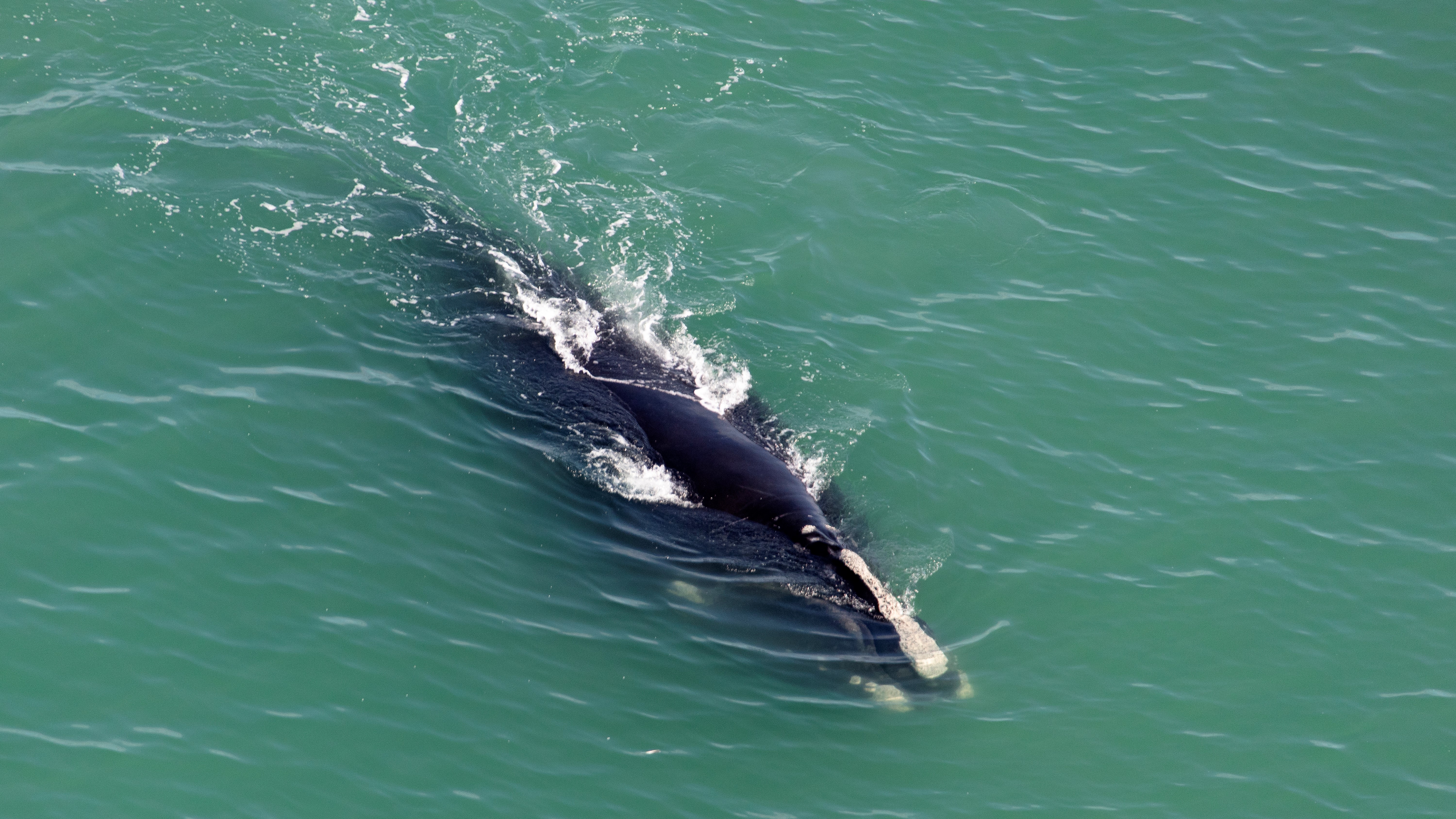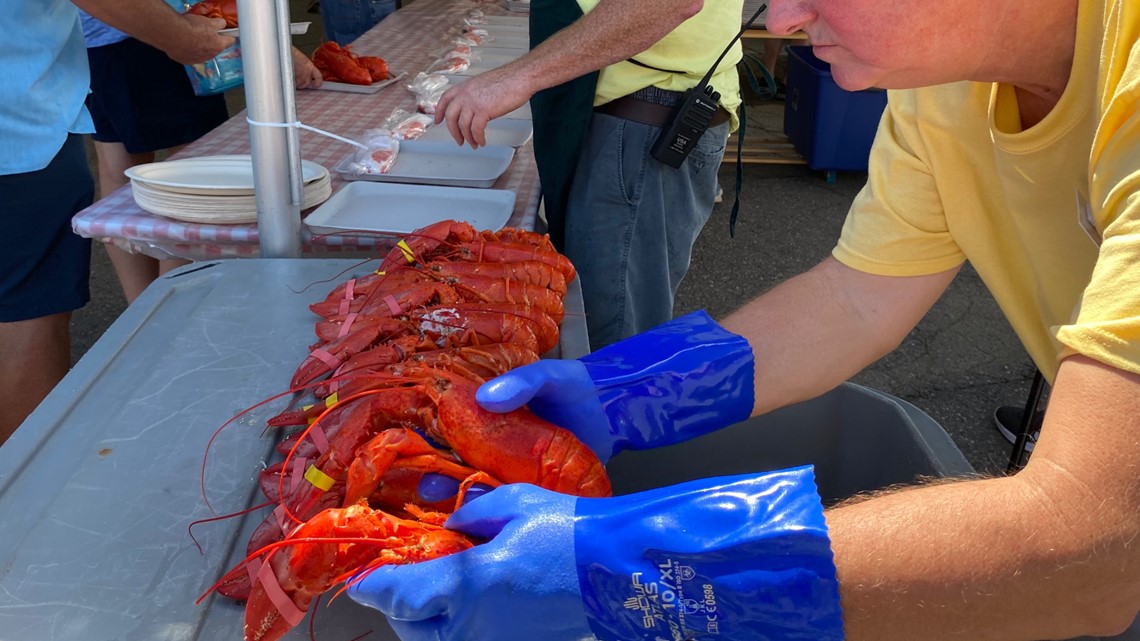Maine's congressional delegation and Gov. Janet Mills have called on an influential conservation group to immediately reverse their "red list" designation of lobster, or provide evidence to back their "irresponsible" claims that the seafood poses too much of a risk to rare whales and should be avoided.
Seafood Watch, which rates the sustainability of different seafoods, said this week it had added the American and Canadian lobster fisheries to its "red list" of species to avoid. The organization, based at Monterey Bay Aquarium in California, said in a report that the fishing industry is a danger to North Atlantic right whales because "current management measures do not go far enough to mitigate entanglement risks and promote recovery of the species."
Following the announcement, some retailers pledged to stop selling lobster, including Blue Apron and HelloFresh.
Mills, Sens. Angus King and Susan Collins, and Reps. Chellie Pingree and Jared Golden announced Friday they had sent a letter to the group asking them to remedy the "significant harm" they have already caused the industry and criticizing the organization for holding the Maine lobster industry to an "impossible 'guilty until proven innocent' standard."
"The recent decision by Monterey Bay Aquarium's Seafood Watch to 'Red List' Maine lobster with scant evidence of impacts on right whales is a reckless piece of activism that will inflict substantial negative real-world consequences on an important and iconic industry in Maine,” the leaders wrote. “In a courtroom, we require evidence before convicting someone of a crime; but you are seeking to sentence Maine’s lobstermen with conjecture, assumptions, and guesswork instead of hard facts. If anything, the publicly available facts rebut this aggressive action that will impact the livelihoods of thousands of people in Maine, and make it clear that you should immediately reverse the irresponsible designation.”
"Each day which goes by with this designation in effect compounds the damage to the lobster industry and the good people of Maine," the letter continued.
The lobster fishing industry has come under scrutiny from Seafood Watch because of the threat of entanglement in fishing gear. Whales can suffer injuries and fatalities when they become entangled in the gear that connects to lobster traps on the ocean floor.
The North Atlantic right whales number less than 340 and entanglement is one of the two biggest threats they face, along with collisions with ships, scientists with the National Oceanic and Atmospheric Administration and other groups have said. The population of the giant animals, which were decimated during the commercial whaling era generations ago, has fallen in recent years.
But the leaders made several claims in their letter that support the group's designation reversal, including that there has not been a right whale entanglement with Maine lobster gear since 2004, and right whale deaths or serious injury have never been attributed to Maine lobster gear. Additional claims included that the majority of right whale deaths since 2017 have been due to vessel strikes in Canada, and that the Maine lobstering community has taken many measures, including eliminating all floating rope (the type of rope most likely to entangle whales) and removed more than 30,000 miles of line from the water.
If Seafood Watch will not reverse its decision, Mills and the congressional delegation said they would like answers to five key questions, including how does harming an already challenged lobstering community with little to no evidence of right whale entanglements promote the safety of right whales? They also pointed out that the group listed Maine Lobster as a “Good Alternative” in 2014, and since that time, they allege the Maine Lobster fishery has implemented even more changes to protect right whales.
The lobster industry in Maine, where most of the U.S.'s lobster comes to land, has not had a documented interaction with a right whale in almost two decades, said Patrice McCarron, executive director of the Maine Lobstermen's Association.
“You have appointed yourself Judge, Jury, and Executioner of the Maine lobster industry – ignoring clear facts, and not meeting even the most basic burden of proof before coming to a conclusion,” the leaders wrote, condemning what they say was a lack of evidence from Seafood Watch.
More Lobster News
On Friday, both Governor Mills and Senator King were joined by representatives of Maine’s lobster industry in Portland to further express outrage and dismay at the Seafood Watch decision.
King called the group and Monterey Bay Aquarium “an arrogant fish zoo” that is being irresponsible by trying to “kill a whole industry and the livelihoods of thousands of good Maine people based on conjecture..”
But the senator also said that he would like a new, detailed assessment of how right whales are getting entangled and in what gear, noting the people on his side of the debate still want to protect the endangered sea mammals.
Because the current “avoid” assessment on what King views as “hunch” and “assumption” he vowed to research whether or not Seafood Watch receives any federal funding and threaten to move to have it eliminated.
“I don’t know why the taxpayers of Maine or the taxpayers of any place should be funding an agency that is this irresponsible and arrogant and thoughtless,” he explained.
Thousands of businesses use Seafood Watch's recommendations to inform seafood buying decisions. Seafood Watch assigns ratings of "best choice," "good alternative" and "avoid" to more than 2,000 seafood items based on how sustainably they are managed. The organization's recommendations have been influential in the past, such as when it red-listed the Louisiana shrimp fishery, prompting efforts to better protect sea turtles. The fishery was later removed from the red list.
Representatives from Seafood Watch and the Monterey Bay Aquarium told NECN & NBC 10 Boston on Tuesday that they used current data available to in reaching their designation but New England lobster could re-gain a sustainability mark in the future, if new research shows gear from the region is not causing significant harm to the whales.
They did not immediately respond to an additional request for comment in response to the Maine officials’ remarks on Friday.
American and Canadian lobster fishermen target the same species, the American lobster, which is popular as live seafood and in processed products such as lobster rolls and lobster ravioli. The vast majority of the world's American lobster comes to the shore in New England and eastern Canada, and the crustaceans are both a key piece of the economy and a cultural marker in both places.
The U.S. lobster fishery is also one of the most lucrative in the country and was worth more than $900 million at the docks in 2021, when fishermen caught more than 130 million pounds of the crustaceans.
Get updates on what's happening in New England to your inbox. Sign up for our News Headlines newsletter.



